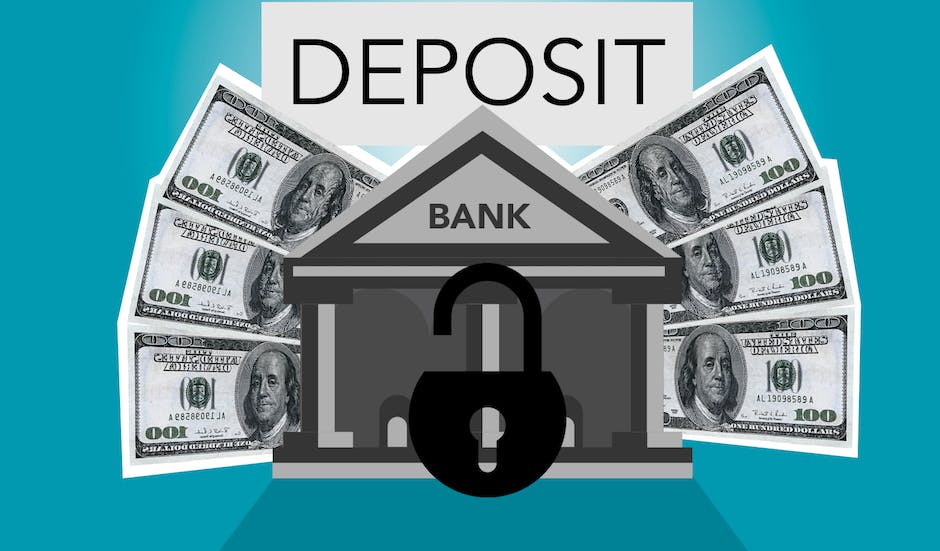Entering into a rental agreement in Maryland presents several considerations to account for, two of which are renters’ insurance and security deposits. Renters insurance in Maryland serves as a protective measure for tenants, safeguarding personal property, providing liability coverage, and catering for additional living expenses incurred when your residence becomes uninhabitable. Security deposits, on the other hand, are critical components in lease agreements, offering financial protection to landlords against potential damages or unpaid rent. That said, understanding the relation between these two elements can provide useful insights on how they shape a tenancy experience. As such, this discourse aims to provide inclusive knowledge on Maryland renters insurance, the state’s security deposit laws, and how these two elements interact.
Understanding Renters Insurance in Maryland
Understanding Renters Insurance in Maryland
Renters insurance, commonly neglected but crucial, provides numerous protections to tenants in Maryland. It operates far beyond the wall of replacing personal items, catering to personal liability and additional living expenses. Often, renters assume that the landlord’s insurance policy will cover their possessions, a grave misinterpretation as the landlord’s insurance only encompasses the building structure but not the individual’s belongings inside.
Typical Coverage of Renters Insurance
Renters insurance in Maryland can be broken down into three fundamental types of coverage; the personal property coverage, liability coverage, and coverage for additional living expenses. Firstly, personal property coverage steps in when personal belongings are damaged, destroyed, or stolen; this ranges from expensive electronics to clothing. However, it is important to note that only losses stemming from the covered perils listed in the policy are valid for compensation.
Secondly, liability coverage safeguards the renter in case someone files a lawsuit against them for bodily injury or property damage. This coverage would cover court and legal expenses up to a certain limit set in the policy.
Lastly, if an inhabitant concept like a fire or flood makes your rented space unsuitable to live in, renters insurance would cover the additional living costs. This may include hotel bills, restaurant meals, and other costs you incur while waiting for your home to be habitable again.
Costs and Factors Affecting Premiums
The cost of renters insurance in Maryland varies largely depending on several factors. The typical renters insurance policy in the state costs between $15 to $30 per month. Factors that affect the cost include the size and location of the rental property, the total value of personal belongings, and the chosen coverage limits and deductible.
The contents of the rental property play a crucial role in determining the insurance premium. More valuable contents like electronics, jewelry, and high-end appliances would trigger a higher premium. Additionally, the location of the rented property has a massive influence; areas prone to theft or natural disasters would warrant a higher premium cost.
Optional Coverage
In Maryland, renters can opt for additional coverage beyond the basic renters insurance policy, depending on their specific needs. This could include flood insurance, since the regular policy doesn’t cover damage caused by floods, valuable items endorsement, for high-cost items that exceed the standard coverage limit, and identity theft coverage, offering services that help you recover if your identity is stolen.
Why Renters Insurance Is Important in Maryland
In Maryland, a security deposit tends to be high, typically amounting to two months’ worth of rent. In case of any damages to the rental property, the landlord has the right to withhold some, or all, of this deposit. Renters insurance is the assurance you need to protect you from incurring these costs. If damage to the property is due to circumstances covered by your renters insurance, like a fire, this insurance will help cover the cost of damages and potentially protect your security deposit.
Understanding Renters Insurance and Security Deposits in Maryland
In Maryland, any adult looking to rent a property must be aware that landlords legally require a security deposit. This sum is kept by your landlord as a form of protection against potential damages that may occur during your tenancy. Fortunately, if you have a renters insurance policy and the property damage falls within your coverage, your security deposit may not be compromised because your policy will address the costs.

Security Deposits Laws in Maryland
Calculating the Maximum Security Deposit in Maryland
It’s important to know that in Maryland, landlords can charge up to two times the monthly rent as a security deposit. This regulation applies irrespective of the lease duration, be it a monthly or a full-term contract. So, for example, if your monthly rent stands at $1,000, your landlord is legally allowed to request a security deposit of as much as $2,000.
Holding of Deposits
In Maryland, landlords are required to place the security deposits in an escrow account. This account can be in any financial institution within Maryland and should earn interest at the rate of 3% per annum, or the actual amount earned by the account, whichever is less. However, the interest is not to be accrued for the first six months of the deposit and may not be compounded.
Deductions from Security Deposit
A landlord in Maryland can make deductions from the security deposit for any unpaid rent, damage beyond normal wear and tear, and breach of the lease agreement. The deductions are also applicable for overdue utility payments, reasonable cleaning charges, and removal of abandoned personal property. However, the landlord cannot hold the tenant responsible for conditions that existed prior to the tenant’s occupancy unless it’s written into the lease or rental agreement.
Return of Deposits
Landlords in Maryland are required to return the tenant’s security deposit within 45 days after the termination of the lease. If deductions have been made, the landlord must provide a written itemized list of all deductions along with the balance, if any. Furthermore, if the landlord sells the property, they should transfer the security deposits to the new owner or return them to the tenants.
Penalties for Noncompliance
Non-compliance with the laws can result in severe penalties for landlords. For example, if a landlord unlawfully withholds a deposit, he may be liable to pay up to three times the withheld amount plus reasonable attorney’s fees.
Renters Insurance in Maryland
While Maryland law does not require renters to have renters insurance, many landlords require it as a condition of their lease. Renters insurance provides protection against damage to or loss of personal property within your rented property due to theft, fire, vandalism, or other unforeseen circumstances. It also provides liability coverage if someone is injured on your premises. It’s important to understand that a landlord’s property insurance does not cover your personal belongings.
However, landlords cannot neglect their duty to maintain a safe environment and merely rely on the tenant’s renters insurance for liability purposes. Lawsuits for injuries due to landlord negligence can still be filed and won by tenants regardless of whether they hold a renters insurance policy or not.
Understanding the laws related to security deposits and the value of renters insurance are critical for both tenants and property owners in Maryland. Knowledge can indeed empower you to navigate the renting process more effectively, so use it wisely.

How Renters Insurance Affects Security Deposits
The Importance of Renters Insurance
Renters insurance is an important security measure that protects tenants and their personal property. It offers coverage against unforeseen events such as theft, fire, injuries within the rented premises, and in certain cases, severe weather conditions. Beyond safeguarding personal items, renters insurance can also cover living expenses if the rental property becomes uninhabitable. Though not obligatory in Maryland, some landlords may include it as a requirement in the lease agreement.
Understanding Security Deposits
A security deposit is customarily required by landlords at the start of a lease term, functioning as a form of assurance against any potential damage to the property during the tenancy. In the state of Maryland, the law has capped the maximum security deposit at two months’ rent. This deposit essentially shields the landlord from the financial burden of repairs or unpaid rents, and any part of this deposit unused for such purposes should be refundable to the tenant at the end of the lease term.
The Influence of Renters Insurance on Security Deposits
Essentially, renters insurance and security deposits serve different purposes. While the former prioritizes the tenant’s belongings and liability, the latter serves as a protective monetary cushion for the landlord. Therefore, a renters’ insurance policy does not typically impact the amount of the security deposit or its return process.
However, securing an insurance policy can indirectly influence your landlord’s perception of your reliability as a tenant, potentially making them more comfortable with returning your security deposit in full at the end of your lease term.
The Interplay between Renters Insurance and Potential Property Damage Scenarios
If a tenant causes damage to the property unintentionally, the landlord can typically cover the repair costs with deductions from the security deposit. However, if the tenant has renters insurance with liability coverage, this policy could cover the repairs instead, enabling the tenant to preserve their security deposit.
To elaborate, liability coverage in renters insurance covers the costs if the tenant is legally liable for damage to others’ property or injuries sustained by visitors. Suppose a tenant accidentally starts a kitchen fire resulting in significant property damage. In this situation, the liability coverage from their renters insurance policy would take care of the damage costs, and the security deposit remains untouched unless there are other reasons for deductions.
Conclusion: Reducing Risk and Enhancing Trust
Possessing renters insurance can mitigate risks for both landlords and tenants. This legal tool helps establish a good, trusting relationship between landlord and tenant. Although it doesn’t directly affect the security deposit’s amount or return process, having renters insurance could showcase a tenant’s sense of responsibility and potential for less financial risk to landlords. This might sway a landlord to fully refund the security deposit, assuming no other issues arise during the lease term.

In summary, renters insurance and security deposits in Maryland act as vital financial protectives for both landlords and tenants. Having comprehensive knowledge on these matters can prepare prospective renters for any eventualities, potentially saving them from strenuous disputes or unexpected financial burdens. It’s important to remember that while renters insurance may not directly affect your security deposit, it provides coverage against circumstances that might otherwise lead to deductions from your deposit. By the same token, understanding the Maryland regulations on security deposits will enable tenants to protect their rights and effectively manage their finances. Above all, having a well-rounded understanding of these facets equips renters in dealing with the complex dynamics of lease agreements in Maryland.
